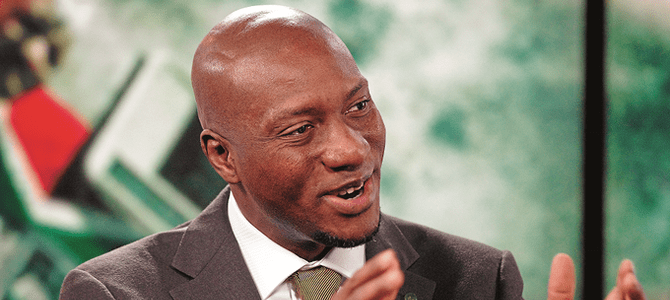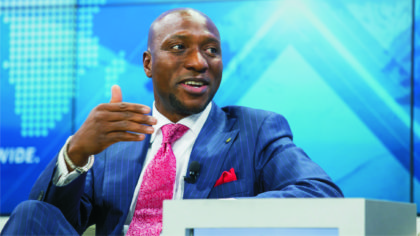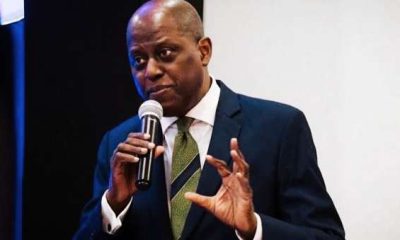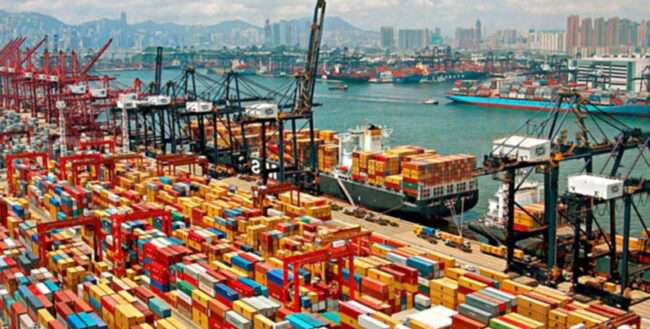Business
2018: Why stock market will continue to soar

OKEY ONYENWEAKU
Stargazers are unreliable fellows but the Nigerian stock market in 2018 is set to ignite investor portfolios as analysts predict a 60 per cent rise in the All Shares Index (ASI) in the New Year. So far the ASI in 2017 has risen by 43.34 per cent year to date easily one of the best risk –to-return rates anywhere in the world for the year. Bumping up from a negative return of – 6 per cent at the end of 2016, the Nigerian stock market has edged up powerfully with a slew of foreign direct investors buying up equities. The ASI which measures the average value of equities rose from 26, 616.89 points early in the year to close at 38,522.14 points on December 22, 2017. Market capitalisation equally advanced by 49 percent (or N4.4trillion) from N9.1 trillion on January 3, 2017 to N13.6 trillion year-to-date. Sectoral indices also climbed equity escalators.
The NSE Banking Index went up 75 per cent year- to- date, while the NSE Insurance Index rose slowly by 8.4 per cent, and the NSE CNSMRGDS gained 40 per cent as the Oil and Gas Index dropped -2.7 per cent.
Equity traders have attributed the recent bullish market run, to a generally optimistic outlook on the economy, especially in respect of growth in the agricultural sector (which grew by 3.1 per cent in the course of the year) and the service sector which equally saw major improvement in patronage and grew by slightly less than 2 per cent. The Oil and Gas sector experienced some set back as oil prices dipped on the international oil market at the beginning of the year but with prices rising above $60 per barrel for Brent, some respite looks likely for companies listed in the sector. Already companies like Seplat and Oando have seen their financials looking brighter.
The latest figures of Nigeria’s principal data agency, the National Bureau of Statistics (NBS), shows that the country’s Gross Domestic Product (GDP) for the third quarter of the year (Q3) grew by 1.4 per cent, a significant improvement over the revised 0.77 per cent in the second quarter (Q2) and a sign that economic activities may be picking up after a deep recession in 2016. The price of crude has been relatively stable, hovering between $58 and $60 per barrel. The volume of production has also been stable given relative peace in the Niger Delta. It is speculated that Nigeria pumps about 2million barrels per day presently.
There has also been some reprieve from the creative handling of Forex by the Central Bank of Nigeria (CBN) which introduced the Nigerian Autonomous Foreign Exchange Rate Fixing Methodology (NAFEX). The CBN created the new window to boost liquidity in the foreign exchange market and ensure timely execution and settlement for eligible transactions. This window appear to have attracted more portfolio investors into the market. Those who had, hitherto pulled out of the financial market during the recession in 2016 seem to be returning in droves. This has helped in no small way to create some level of confidence in the Nigerian economy despite recent low ratings Moodys, an international rating credits agency.
National Bureau of Statistics (NBS) figures show that the value of capital imported into Nigeria in the second quarter of 2017 rose by $884.1 million to stand at $1.79 billion, represents 95.02 per cent increase.
According to the NBS, Portfolio investments increased by 128.4 per cent, from the $337.3 million recorded in second quarter of 2016.And Portfolio investment was the largest component of imported capital in the second quarter of 2017, put at $770.5 million, or 43.0 per cent of the total.
A peep into 2018
There appears to be bright prospects for the stock market in 2018. Stock analysts believe that with 2018 being a pre-election year the government would be under severe pressure to reflate the economy and generate demand needed to expand the real sector and create jobs. With a staggering local unemployment rate of 36 per cent between the ages of 18 and 34, the unemployment question will be a major campaign issue in 2019.
There is strong belief that fiscal and monetary policies of the federal government will be expansionary in the New Year as the government struggles to push the economy ahead faster. Of course, those who want to win election will pretend to have the masses at heart and loosen the tight policies to provide liquidity. In this light, President Muhammadu Buhari has already presented a budget of N8.6trillion for 2018.
The Governor of the Central Bank of Nigeria, Mr. Godwin Emefiele may also temper down monetary policy rate (MPR) from 14 per cent to affect lending rate which hovers between 20 to 25 per cent in the banking industry. This will prompt higher earnings for companies and attract investors to invest in the market. Analysts note that it may not be out of place to see investors drifting from money market securities to the stock market. More so, interest rates for deposit savings accounts are still very low at 3 to 4 per cent while coupon rates have declined to about 14 per cent. Many market observers agree that this may have been caused by the Federal Governments shift to borrow from the international market and not crowd out the private sector.
A few weeks ago, the Minister of Finance, Mrs Kemi Adeosun released N750billion capital expenditure, the price of crude still hovers reasonably at $60 and $62 per barrel and there is relative calm in the Niger Delta. These many believe will provide liquidity to players in the market.
The stock market in 2018
Whereas nobody can predict the capital market with accuracy, experts have always tried to make projections which could be close sometimes and outright wrong at other times.
However, there is huge optimism, given the prevailing trend which nobody expects could run to a hitch in 2018 or anytime soon.
Almost all the measurement indices seem to favour a continued bullish trend.
Analysts believe that some of the stocks are undervalued given their Price earnings ratio. What ever may be the case, analysts are almost convinced that the debt market may give way for the equities market to dominate investment in 2018 if the Federal Government continues to borrow externally.
Recently, the International Monetary Funds (IMF) projected the Nigerian economy will grow at 1.9 per cent in 2018, while other analysts are seeing higher growth given the growth of 2017 at 1.4 per cent already.
Former President, Association of Stock Broking Houses of Nigeria(ASHON), Mr. Emeka Madubuike told Business Hallmark (BH) in a telephone interview that the macro-economic environment of 2018 would determine what happens to the equities market. Madubuike explained that sentiments were that the economy will fare better in 2018 than in 2017.
According to him, the issues that are holding the economy down appear to be loosening for the better. However, he noted the main problem of the economy was lack of productivity.
For Dr. Afolabi Olowokere of Financial Derivatives Company Limited, Equity Market may attract more attention than the Debt market next year. He explained that if the government continues to borrow externally, the debt market may be low and investors may shift to equity.
Olowokere projects that the equity market may grow by 15 per cent next year. ‘’Interest rate may come down next year’’, said Olowokere.
In his view, Managing Director, Crane Securities Limited, Mr. Mike Ezeh, submitted that the capital market will receive a boost in 2018 better than in 2017 when foreign investors dominated activities in the market.
Unfortunately, these are projections and assumptions that will shape the economy and the capital market next year. But since there is no certainty that all things will be equal, there are yet other conditions that may hamper the growth of the capital market in 2018.
Last month, Managing Director/ Chief Executive officer, Financial Derivatives Company, FDC,Mr. Bismarck Rewane, pointed out that the 2018 budget had nothing significant to grow the economy and also lacked incentives for expenditure growth.
“Inflationary projection in the budget is not realistic. Government is silent on subsidy on power and petroleum products, and minimum wage. The projection for non-oil revenue is not realistic and the deficit gap may widen after all,” Rewane said.
There is also the discomfort that the multiple exchange rates in the economy may continue to pose challenges and this was not addressed in the budget and is capable of distorting the market. In the prevailing circumstances Nigeria has different exchange rates for different categories of people or businesses.
“Oil production is also ambitious. We are being too optimistic without a clear plan of how to achieve our target. Over the years, we have distorted the budget cycle. This will affect implementation and good accounting. Nigeria should have a clear budget cycle and budgetary interferences should be avoided’’, said Professor of Economics at the University of Lagos, Ifeanyi Nwokoma
Others have pointed out the high country risk in terms of inconsistency of policy, insecurity, breaking of the rule of law by the Presidency and desperate agitations by the different groups that make up the Nigerian nation may weigh down on investments and affect foreign inflows. These notwithstanding, there appears to be a consensus that the capital market would see better days in 2018 because of the economy’s inclination to provide liquidity given the coming election.
Findings by BH reveal that though the market is relatively strong in a weak economy, it is difficult to predict with any amount of certainty its future. However, the market over the years had gained 65% in 2003;18.5%in 2004;1.01% in 2005;37.80% in 2006;74.73% in 2007; and lost -45.77% in 2008. It also lost -33.80% in 2009 and took a rebound to gain 18.50% in 2010.The market slipped back in the negative by -17% in 2011, gained – 35.4% in 2012, gained 47.19% in 2013, lost by -16.14% and close in the negative by about -17.3% in 2015 just as market closed at -6 per cent negative in 2016.










